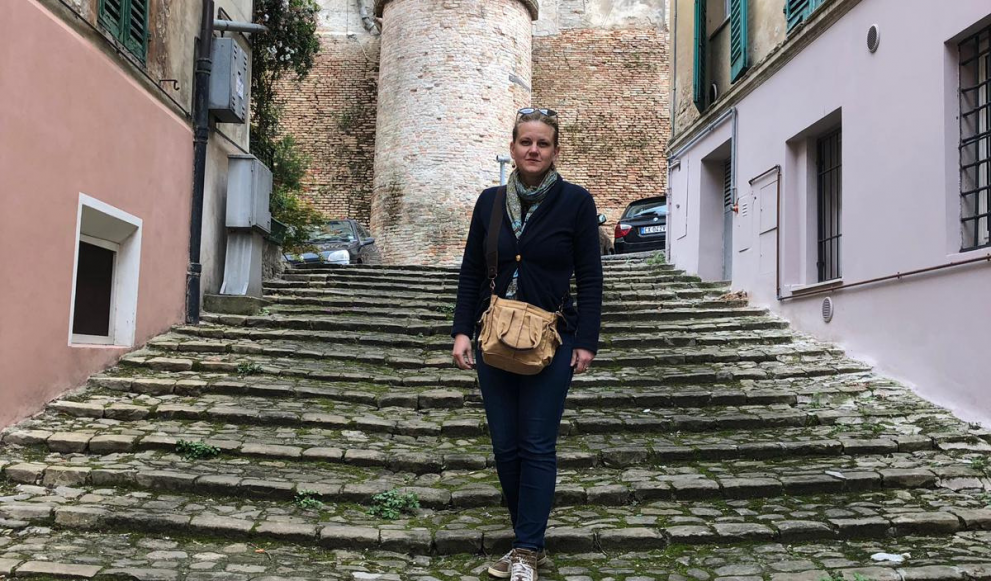
As part of the EU project, attended by Maritime School of Split, Croatia in cooperation with Commercial and Trade School of Split, Croatia, a study trip to Italy was organized from 4th – 9th May 2019. Our host was the Educational Center for Employment and Qualification (Centro per l'impiego and Formazione di Jesi), not far from the city of Ancona. There were 8 professors from our schools that attended this study travel. I was the lucky one among them to attend this trip. The idea was to get to know the modern concept of vocational education and guidance which us eight professors would be able to spread on return to Croatia. The educational center we visited belongs to the Marche region, which has about 1.3 million inhabitants and about 100 vocational schools. The Italian education system is similar to Croatian and allows a professional orientation of students at the age of 14 to 15.
We enjoyed our trip, Italian restaurants, the culture of a little town called Lesi but we also worked on improving our competencies as vocational teachers. European vocational education needs change. Traditional approaches enabled students to focus on the education of a particular profession at the age of 15, which would guide them for a lifetime. Modern approaches change such a strict professional orientation of young people with the intention to adopt the European employment market. It began with changes in the UK and spread to the whole of Europe. EQF or European Qualifications Framework includes knowledge, skills, and competences. Under this framework, 8 key competencies of lifelong learning are: literacy, languages, science, technology, engineering and mathematics (STEM), digital competence, personal, social and learning skills, Civic competences, a Sense of initiative and entrepreneurship, and cultural awareness and expression. In addition to the traditional grading of technical competences or so-called "hard skills“, at the same time we acquire to develop the so-called "soft skills“ and competencies that are much more difficult to learn, and mostly refer to personal competencies such as organization and management, problem solving in crisis situations, empathy, etc. All of these skills (soft skills) also affect hard skills, so we can conclude that competence is a mix of knowledge, practical work and personal, "soft" skills.
Today there are ways to improve soft skills through self-evaluation patterns. The British have first developed a digital tool through self-evaluation forms for a variety of vocational students that can be better targeted in a professional sense. Through EU projects the tool has expanded and is now available in the Italian language at www.sorprendo.it. The ECVET (European Credit System for Vocational Education and Training) has made soft skills measurable, standards established, and professional orientation of VET students more modern.
Ivana Prezzi, trip attendant, teacher at Commercial and Trade School of Split, Croatia
Details
- Publication date
- 27 August 2019
- Author
- Directorate-General for Employment, Social Affairs and Inclusion
- Involvements
- Teacher/trainer
